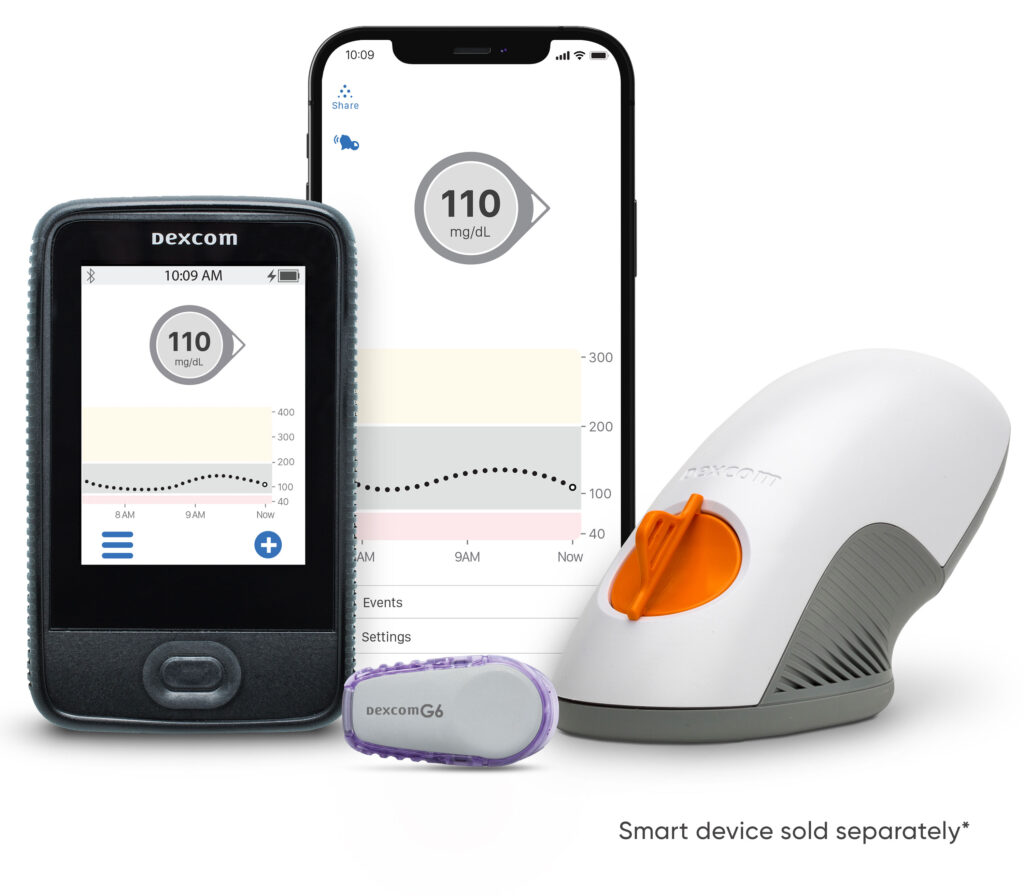Florida’s New Law Expands
In a bid to make life easier for the over 37 million Americans living with diabetes, a recent Florida law is set to provide much-needed support to eligible adult diabetics who rely on Medicaid.
The law, which took effect on October 1, aims to enhance access to continuous glucose monitors (CGM) for Medicaid beneficiaries who meet the criteria, potentially benefiting more than 2 million residents in the state.
Tip: Fill out this form to check if you or a friend qualify for CGMs
Empowering Diabetics with Continuous Glucose Monitoring
For Christina Martin, a Type 1 diabetic diagnosed at the tender age of 13, the condition has had a profound impact on her life. She remembers thinking to herself,
“That was a very frightening and perplexing experience for me, and I felt very alone.”
Me and my family were trying to navigate living with this disease, and we didn’t know what it meant.” In her backpack, she carries a crucial companion—her glucose meter.
Describing her glucose meter, Martin emphasizes its significance, saying,
“What’s really cool about this is that it looks like a wallet. It’s not something that everyone can access, and that’s a huge problem.”
Under House Bill 967, Medicaid is now mandated to provide qualifying diabetes patients with the opportunity to use a CGM if their healthcare provider prescribes it.
The bill specifies that the Agency for Health Care Administration (AHCA) must extend coverage for CGMs under the Medicaid pharmacy benefit for the treatment of Medicaid recipients diagnosed with diabetes.
This is, however, contingent on the availability of funds and parameters provided in the General Appropriations Act.
Must Read CGMs in noncritical care hospitals optimizes glycemic control
Understanding Continuous Glucose Monitors
The bill defines CGMs as devices designed to aid in diabetes treatment by measuring glucose levels on demand or at set intervals. These monitors use a small electronic sensor that penetrates the skin slightly when applied, designed to remain in place and active for at least 7 days.
To qualify for this benefit, a Medicaid recipient must have a diabetes diagnosis treatable with insulin, a prescription for both insulin and a CGM from an authorized healthcare practitioner, and active participation in appropriate follow-up care.
Additionally, the AHCA must seek federal approval, if required, for implementing this policy. The fiscal impact of the bill is also required to be included in the rate-setting process for Medicaid managed care plans for the contract year that commenced on October 1.
Also, read about Awareness Campaign at Oculus Center in New York
Diabetes Advocate: Christina Martin’s Journey
Christina Martin’s journey with diabetes led her to establish the Type Zero Foundation in October 2016, catering to the Central Florida region, including Orlando, Lake Mary, Sanford, Oviedo, Kissimmee, and Clermont. The foundation’s mission is to provide ongoing support to individuals and families affected by diabetes.
Through the Type Zero Foundation and the Stronger Than 1 Fitness League, which focuses on personal training, Martin helps individuals at a grassroots level to lead their best lives.
Drawing from her personal experience with Type 1 diabetes and her kinesiology background, she guides people through a series of workouts and educates them about blood sugar management.
Martin’s impact is evident in the success stories of her clients. Julia Masterson and Christy Peters, both diagnosed with diabetes, credit Martin’s training for transforming their lives. According to Peters,
“I’m down 40 pounds, and my blood sugar has dropped to almost normal for A1C.”
Martin takes a holistic approach, emphasizing the importance of physical activity in managing blood sugar, particularly in cases of insulin-resistant Type 2 diabetes. Her commitment to empowering individuals with diabetes to achieve their full potential is the driving force behind the Type Zero Foundation.
Read Guide about Wegovy Dosage Guide: The Best Way For Weight Loss
Expanding Access to Continuous Glucose Monitors
Florida Medicaid previously covered CGMs for children under 21. The new legislation marks a significant step forward in broadening the accessibility of these essential devices to more Medicaid recipients who meet the criteria, subject to funding availability.
The law underscores the state’s commitment to improving the lives of those living with diabetes and enhancing their access to vital healthcare resources.


